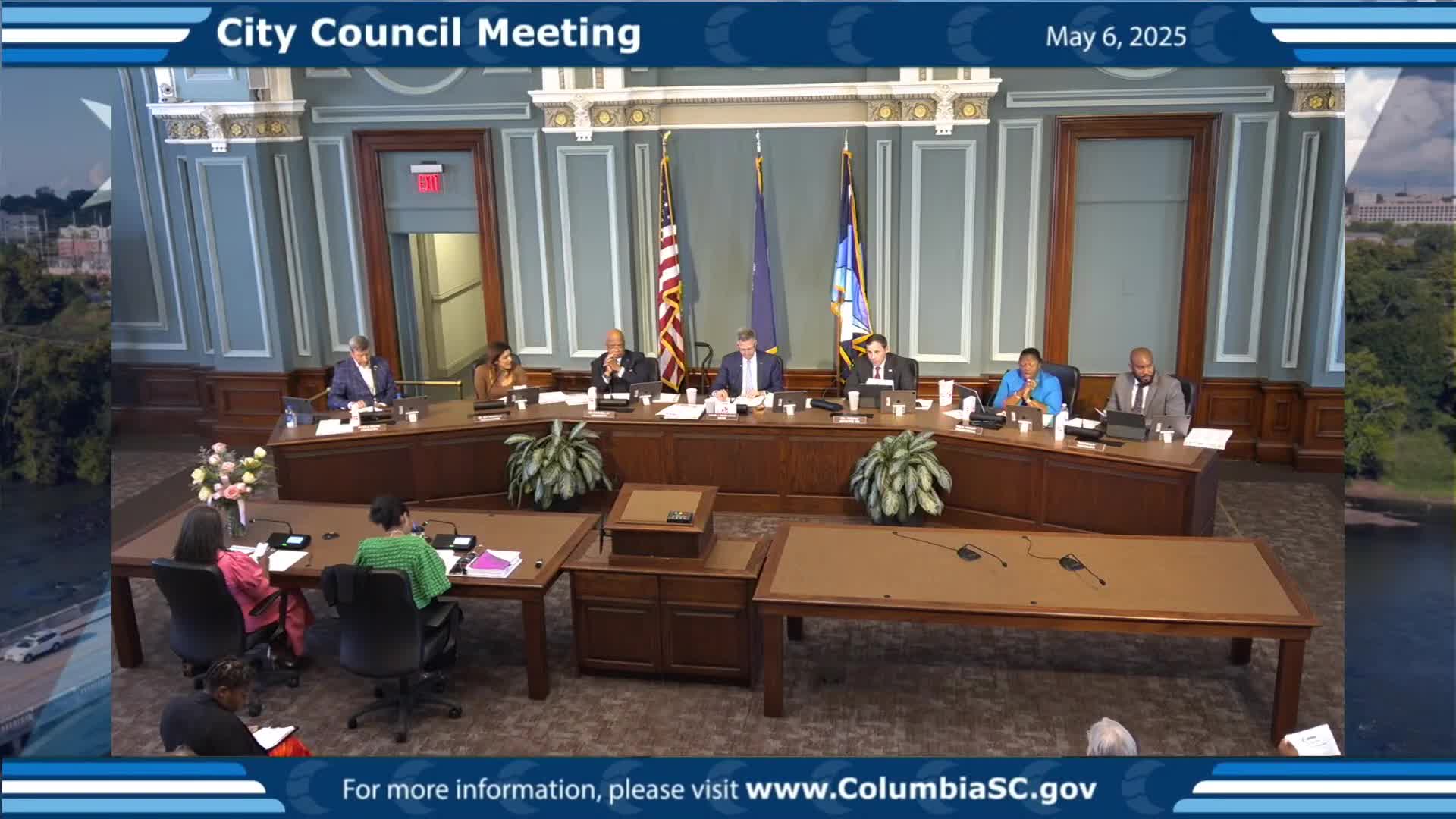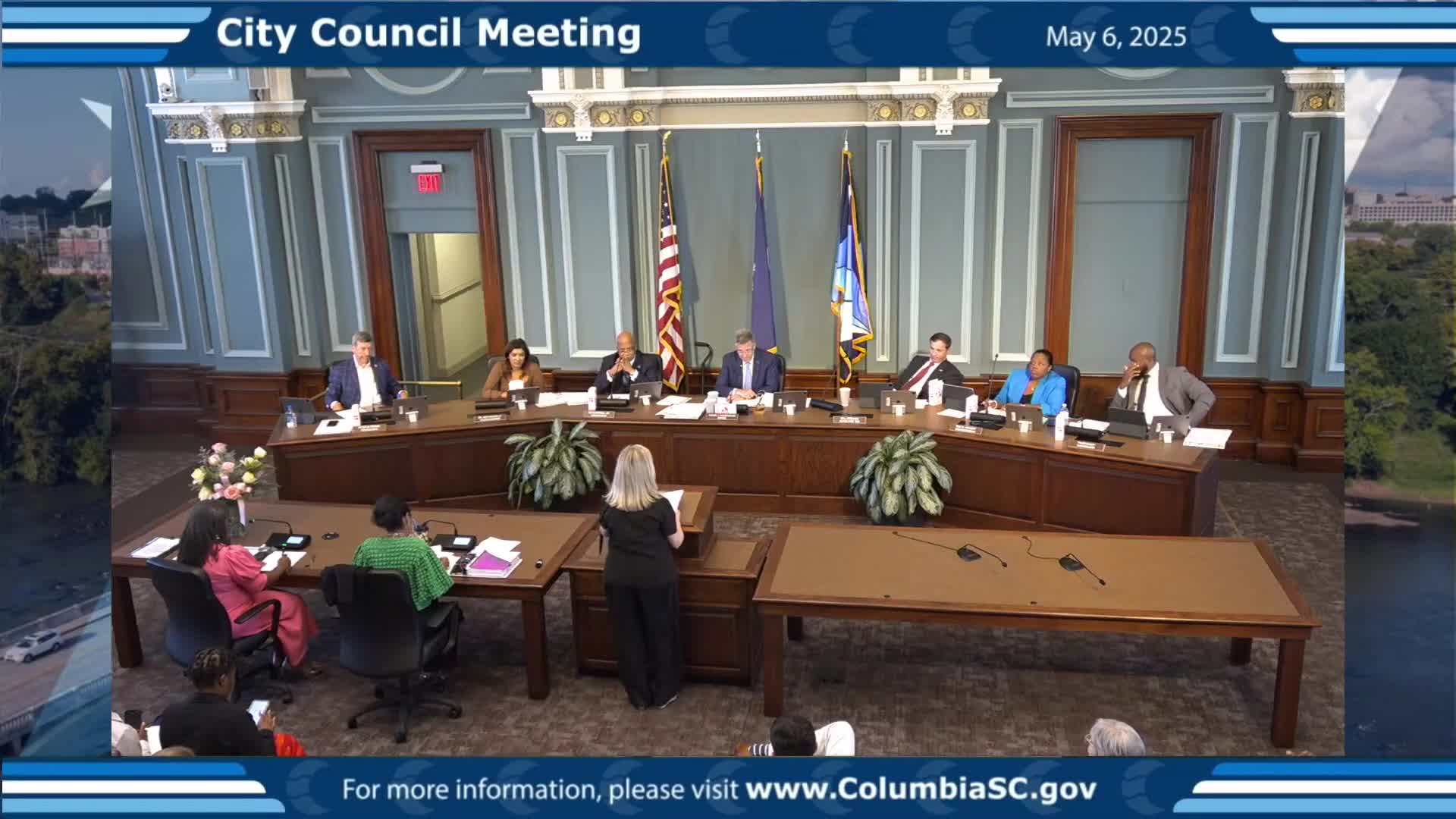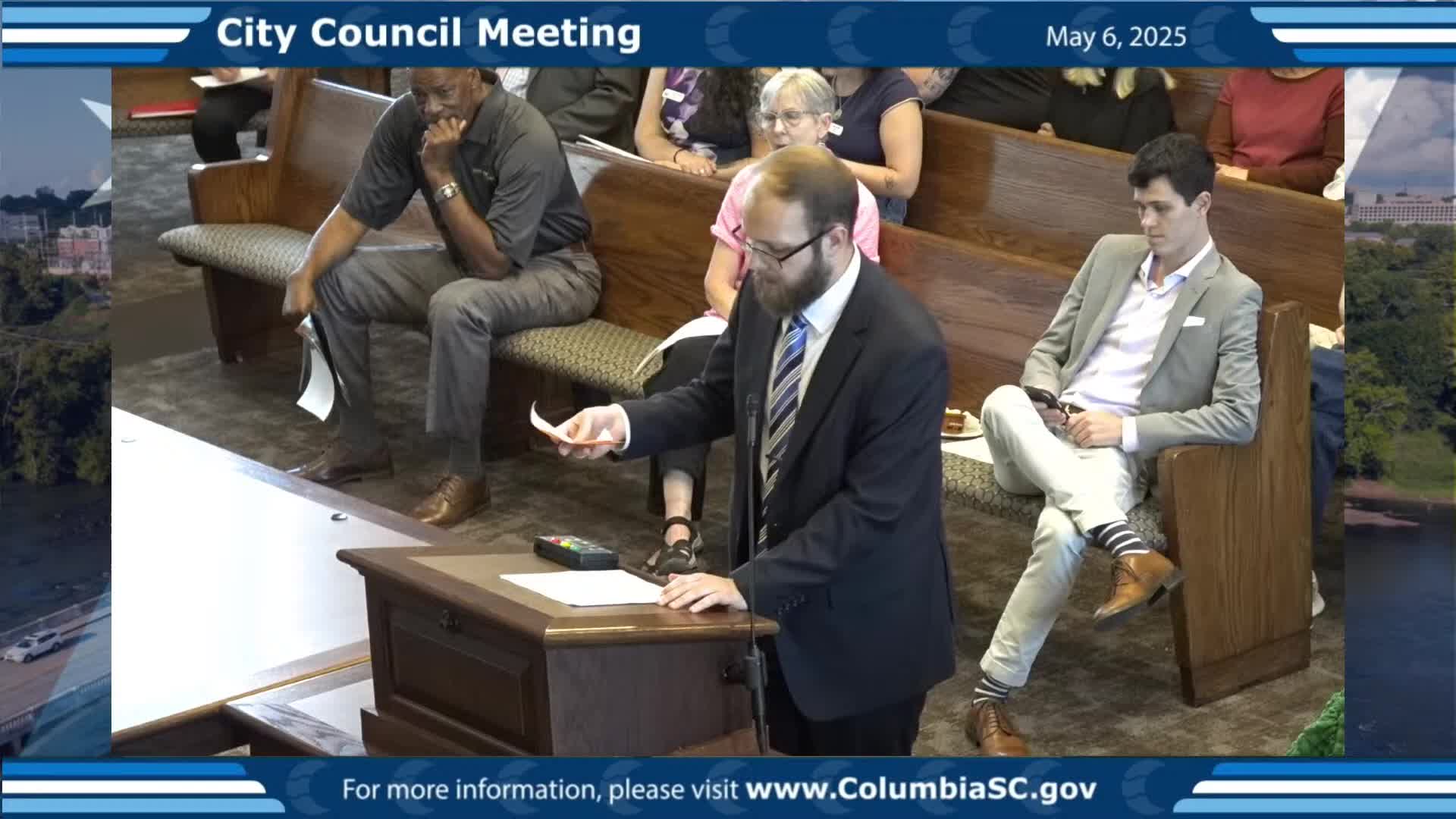Article not found
This article is no longer available. But don't worry—we've gathered other articles that discuss the same topic.

Columbia council approves public-safety project amendment, property acquisition and community allocations

Residents tell Columbia council to keep city—ordinance banning conversion therapy amid AG review

